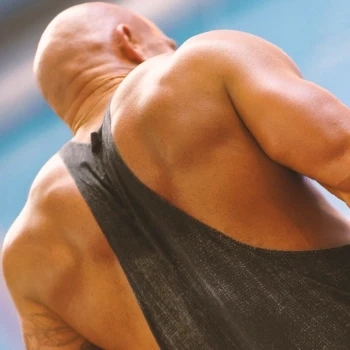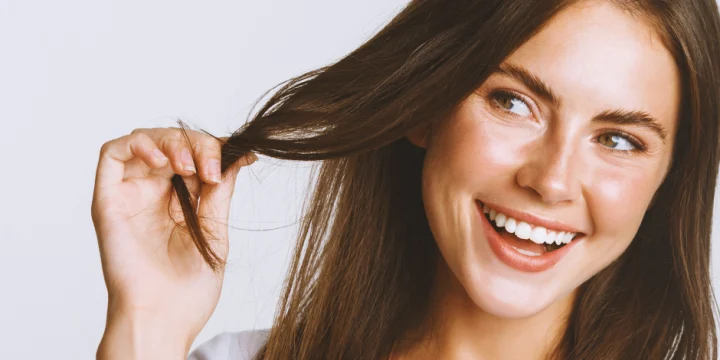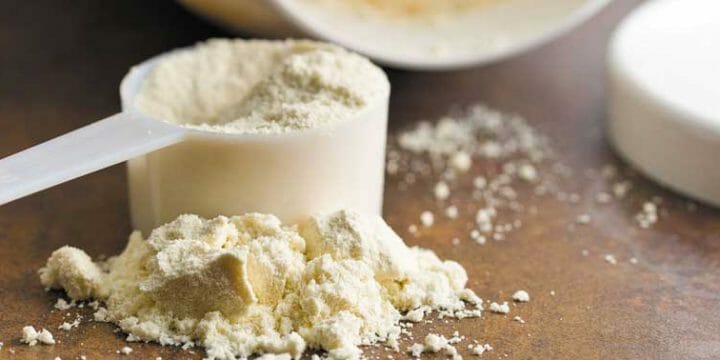As someone who has experienced fluctuations in body hair growth due to varying testosterone levels, I’ve delved deep into scientific research and personal experiments to unravel the intricate relationship between high T and body hair.
So, I decided to do an in-depth analysis of scientific information on the topic and talked to an endocrinologist for a professional opinion.
Here is what I found out.
Quick Summary
- More body hair can indicate higher testosterone levels, as testosterone influences hair growth on the face and body.
- The presence of certain genes, such as AR genes, determines how responsive hair follicles are to testosterone, affecting individual hair growth.
- Normal testosterone levels for men aged 19–39 are 264–916 ng/dl; variations outside this range may manifest in hair growth differences.
- From my perspective, while body hair can be a sign of high testosterone, it's not a definitive measure due to genetic and individual variations.
How Does Testosterone Make You Hairier?

In my own experience, an increase in testosterone led to a noticeable growth in body hair, a change attributed to the rise in dihydrotestosterone (DHT). I consulted with endocrinologists to confirm this, enriching my understanding of the powerful effects of DHT.
According to the National Library of Medicine, whenever the body's DHT levels are high, it develops more body and facial hair [1].
Therefore, the more testosterone you have in your body, the greater your ability to grow more hair, such as facial hair. This process is a fascinating aspect of human biology.
When testosterone is synthesized (from progesterone and pregnenolone, two additional steroid hormones), it moves throughout the body, searching for specific receptors to attach to.
These receptor cells congregate in a region of the hair follicle known as the dermal papilla; testosterone binds tightly and, depending on genes, either promotes or inhibits hair growth [2].
However, as we grow, the bigger, strong hairs shrink to small fine ones, finally dying and not growing again.
"Testosterone governs hair development by regulating the follicle and how it produces various types of hair, such as facial, pubic, and scalp hair."
– Michael Scott, Doctor of Medicine
Testosterone and Body Hair

Men typically have more body hair due to higher testosterone levels, affecting their appearance.
The amount of testosterone in the body plays a significant role in determining chest hair growth extent and thickness. More testosterone usually means more chest hair, while lower levels might result in sparser growth.
In addition, young males have smooth vellus hair all around their bodies until puberty. Their body hair will grow thicker and darker over time. This is the stage at which men begin to grow more prominent facial and chest hair.
Other Views on Testosterone
Beyond the physical and hormonal perspectives, the societal and cultural lenses offer another dimension; different societies and cultures harbor varied perceptions of body hair and its association with masculinity, leading to diverse stigmas, stereotypes, and levels of acceptance globally.
In addition to hormonal influences, the genetic blueprint plays a pivotal role; genetic factors intricately weave into the narrative, dictating the patterns of body hair growth and its interaction with testosterone levels, unveiling a tapestry of variations across ethnic groups and family lineages.
If you want to enhance your understanding of how testosterone influences hair growth, consider exploring the benefits of Fountain TRT.
This is an optimized hormone therapy designed to promote overall well-being and vitality.
While we've delved into the biological aspects, it's crucial to also consider the psychological impacts of increased body hair, a phenomenon often linked to elevated testosterone levels, which can significantly influence an individual’s self-esteem and social interactions.
Testosterone and Facial Hair
I remember waiting for my first facial hair, a sign of becoming a man. Mine came late due to genetics and testosterone. Each person's beard growth is a story of this complex interaction [3].
Even though DHT can cause baldness, it generally results in thicker facial hair. This paradox is a curious aspect of testosterone's effects.
Patchiness is a common issue for men seeking to grow a beard, particularly if they have low DHT levels in their bloodstream.
Because your cheeks have less blood flow, nutrients and hormones have a more difficult time reaching the area.
Therefore less DHT in the face leads to less hair in the same region.
Testosterone and Baldness

While male pattern baldness and testosterone are linked, the relationship is more convoluted.
Baldness is governed by genetics rather than the amount of testosterone in your system. Understanding this relationship can help demystify the process of hair loss.
According to the Journal of Investigative Dermatology, testosterone levels are similar in healthy men, but genetic factors like the AR gene affect hair follicle sensitivity [4].
I've seen how enzymes change testosterone, leading to shorter hair growth and hair loss. It's a hidden battle under the skin.
Symptoms of High Testosterone

According to a 2017 research including over 9,000 men from the United States and Europe, the typical total testosterone level for men aged 19–39 years is 264–916 ng/dl [5].
Levels higher than this are considered abnormally high [6].
Men with exceptionally high testosterone levels may have the following symptoms:
- Aggressive or reckless behavior
- Acne
- Headache
- Infertility
- Heightened appetite
- Heart or liver issues
- Insomnia
- Unexplained weight increase
- Legs and feet swelling
While women may also suffer from high testosterone, their symptoms differ to a great extent.
Signs of abnormally high T levels in women may include an enlarged clitoris, irregular periods, voice deepening, loss of libido, weight gain, and thinning hair [7].
Related Articles:
Can a Testosterone Booster Help Beard Grow?
A testosterone booster can help beard grow in men who suffer from low T. That’s because body hair growth, in general, depends on testosterone and its more potent form, dihydrotestosterone (DHT) [8].
So, your success in growing a beard partially depends on how sensitive your hair follicles are to DHT. You can’t really do much about that - it is what it is.
But the rate at which your beard grows is also affected by your testosterone levels. And, luckily, boosters can increase your T.
Here’s how it works: higher testosterone leads to higher DHT. The opposite is true for low T. That’s why healthy young men grow a thick beard faster than older men with lower testosterone.
In addition, maintaining a healthy lifestyle and paying attention to the overall health of your body and hair follicles can positively influence beard growth.
Adequate nutrition, including essential nutrients like proteins, vitamins, and minerals, supports hair follicle health and vitality, facilitating robust body hair growth, including the beard.
Proper hair care practices, such as regular washing and moisturizing, can also contribute to a conducive environment for healthy hair follicles and optimal beard growth.
In a nutshell, testosterone accelerates beard growth by shortening the hair growth cycle. The cycle consists of three phases:
- Anagen
- Catagen
- Telogen
Healthy levels of testosterone shorten the catagen and telogen stages. In other words, they can increase beard growth.
But testosterone supplements may also have adverse effects, according to the Medical News Today [9].
DHT affects beard hair and head hair differently. While it helps with beard growth, it may also accelerate the thinning of the hair and lead to male pattern baldness.
FAQs
Does High Testosterone Cause More Body Hair?
Yes, high testosterone causes more body hair. When you have high testosterone levels, the testosterone is converted to dihydrotestosterone (DHT), which is more potent than testosterone and causes more facial and body hair.
Why Does Testosterone Cause Body Hair Growth?
Testosterone causes excessive body hair growth because it binds tightly to the dermal papilla of the hair, thus encouraging hair growth.
What Hormones Increase Body Hair?
The hormones that increase excess body hair are the androgens. The increase may occur when these hormones' levels elevate or your body becomes more sensitive to them.
How Long Does It Take for Testosterone to Work on Facial Hair?
On average, it takes 12 months for testosterone to work on facial hair.
References:
- https://www.ncbi.nlm.nih.gov/pmc/articles/PMC7432488/
- https://www.ncbi.nlm.nih.gov/pmc/articles/PMC1459164/
- https://pubmed.ncbi.nlm.nih.gov/7126460/
- https://www.sciencedirect.com/science/article/pii/S0022202X15411753
- https://pubmed.ncbi.nlm.nih.gov/28324103/
- https://pubmed.ncbi.nlm.nih.gov/28324103/
- https://www.ncbi.nlm.nih.gov/books/NBK526128/
- https://www.businessinsider.com/beards-facial-hair-men-cant-grow-dermatologist-testosterone-2018-11
- https://www.medicalnewstoday.com/articles/68082
About The Author
You May Also Like






